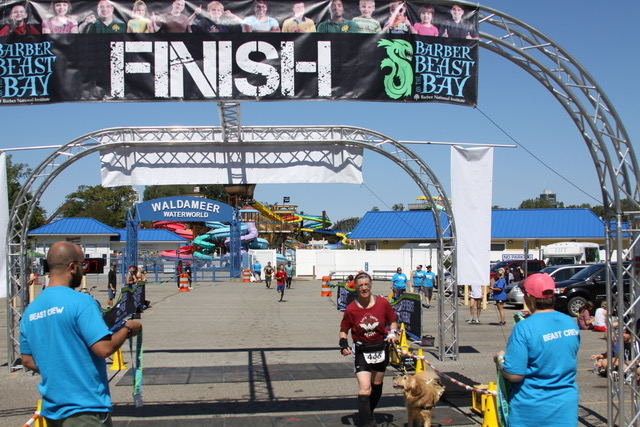Helminski uses her blindness as an opportunity to make an impact on the world through racewalking
and the arts.

It’s not a stretch to say that racewalking saved Shirley Helminski’s life.
In late July 1993, Helminski, who goes by the nickname Passle, was brutally attacked in a parking lot.
After arriving at the hospital, doctors were unaware at first that she was suffering a massive stroke. A CT
Scan was eventually conducted, but the damage had been done.
Hospital officials told Passle’s husband Ron, then her fiancé, that he should begin making funeral
arrangements. She was unable to see or speak and was paralyzed on her right side.
However, the doctors underestimated Passle’s fighting spirit and determination. This wasn’t the first
physical challenge she had faced. In 1987, she had one hand crushed in a door, broke the other hand in
another mishap and tore ligaments that connected her left hip to her spine while practicing as a
ballerina for “The Nutcracker”.
Slowly but surely, Passle recovered from the stroke. Prior to the assault, she was training for the
Olympic Trials in racewalking, hoping to qualify based on her finishing time in the New York City
Marathon.
“(My neurologist) kept saying to me, ‘your recovery is incredible; what have you been doing?’,” recalled Passle, a native of Erie, Pennsylvania. “I said I’m trying to race again. I’m trying to do my art and my music. So he encouraged his other patients to try and do music, art and movement. The vascular surgeon told me the same thing, that because you’re in such good shape, that’s the only reason you’re still alive.”
Passle was born on July 4, 1954. As a child, she developed a stutter, and accidentally combined the words castle and palace during a school play, resulting in her nickname. Like many other challenges in her life, she turned the moment into a positive experience and rarely goes by her given name. She takes the same view toward her blindness.
I try to have blind students embrace their life and don’t see it as a negativity or holding back. See it as another way to make an impact on the world.
Passle acquired a passion for music and art growing up. She earned a bachelor’s degree in art at Mercyhurst College, a master’s from Edinboro University in Pennsylvania, and a Master of Fine Arts degree specializing in weaving and textile design.
It was after tearing her ligaments in ballet that Passle took up walking at the encouragement of her doctors. While it was difficult for her to run, she discovered racewalking and found she was good at it. She teamed up with a coach, Barb Filutze, and began training for the Olympics.
I had to take three minutes off my time in the New York City Marathon to qualify for the introduction of racewalking before it was a regular event, and that’s when I was assaulted.
While Passle has refused to allow her physical disabilities to get in the way of her accomplishments, she’s also had a strong support base. Her husband Ron, a dentist whom she met on a blind date, and her older sister Bonnie have been by her side through the peaks and valleys. Both took turns driving her to class and taking notes during her graduate studies.
Bonnie, who qualified for the New York City Marathon after Passle was assaulted, wore a shirt during the race with the words, “This One’s for Passle”.
They encourage me. It took me forever to do my first 5K. They were both there with me. It wasn’t pretty, but I did it. We’re a team.
Passle first discovered the Foreseeable Future Foundation during a presentation through the National Federation of the Blind. She reached out to them for financial assistance with training and other expenses for competing in the New York City Marathon and other races. She was overjoyed to be one of this summer’s grant recipients.
I was blown away. I didn’t expect this to happen at all. Life has a way of coming full circle.
Passle has been drawing since age two. Her artwork has been featured in museums around Pennsylvania and the U.S. She’s a featured artist at Please Touch, a show for visually impaired artists in Seattle and the Second Sense show in Chicago. As a musician, she plays flute, guitar, violin and piano. She views her love of racewalking and the arts as interconnected.
I can’t have one without the other. If I get stuck at art, I put on my shoes, harness up my dog and go out. If I’m still stuck, I pick up my flute or guitar and start working on that. Somehow, they all come together.
Passle’s vision fluctuates from day to day. But her near-death experience, or ‘tunnel of light’ as she calls it, has taught her to embrace the present and future. She has her sights set on this year’s New York City Marathon. If successful, she hopes to compete in the other major marathons in Chicago, Boston, London and Berlin. She has a guide dog, Zoey, whom she received from Pilot Dogs.
Without their support, I wouldn’t be in the shape I am today.
